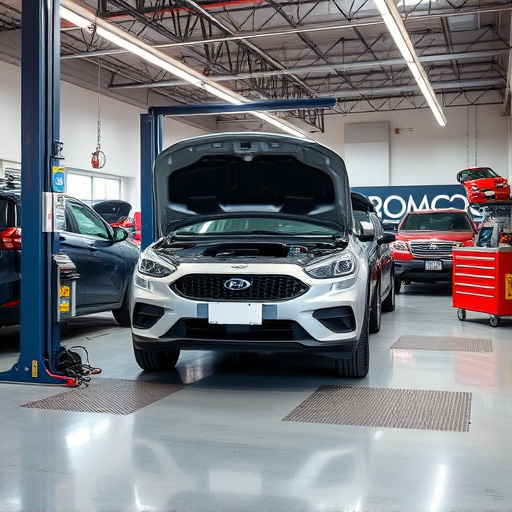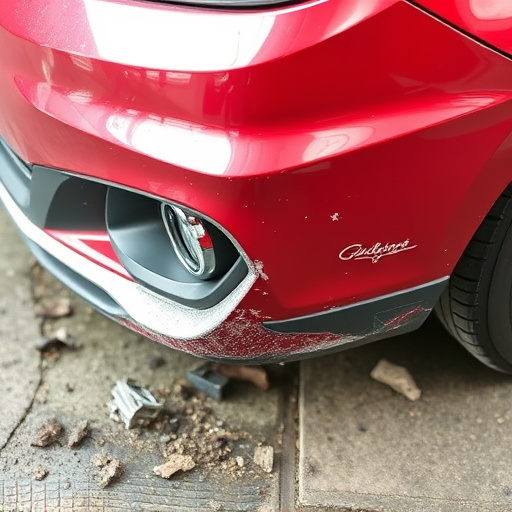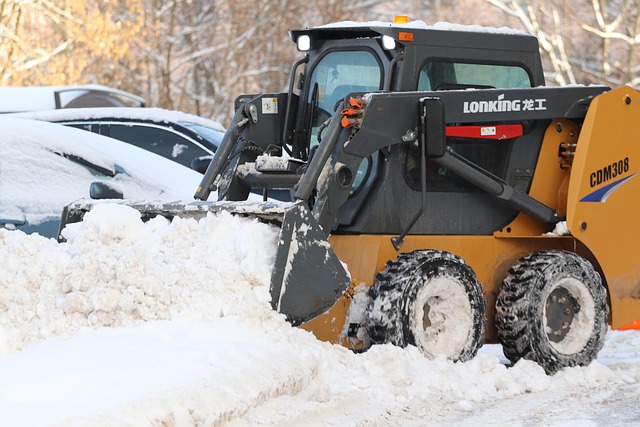Heavy-duty trucks, essential for logistics, pose significant collision risks due to their size, weight, and operating conditions. These incidents are often caused by driver error, maintenance issues, road conditions, and environmental factors, potentially leading to severe damage. Prompt collision repair services with specialized equipment and trained technicians are vital to minimize downtime, costs, and future accident risks. Preventing collisions requires a multi-faceted approach: regular vehicle maintenance, safe driving practices like adhering to speed limits and managing fatigue, and defensive driving training. Advanced technologies, such as Forward Collision Warning (FCW) systems and GPS tracking, aim to prevent and mitigate collision incidents, enhancing road safety and improving fleet management.
Heavy-duty trucks play a vital role in today’s transportation network, but they also come with significant collision risks. This article delves into top safety tips aimed at preventing heavy-duty truck collisions. We explore key practices for drivers, from maintaining vehicles to adopting defensive driving techniques. Additionally, we highlight advanced technologies designed to enhance safety and avoid accidents, such as collision avoidance systems and improved vehicle monitoring. By understanding these risks and implementing these measures, we can foster a safer transportation ecosystem.
- Understanding Heavy-Duty Truck Collision Risks
- Essential Safety Practices for Drivers
- Advanced Technologies for Collision Avoidance
Understanding Heavy-Duty Truck Collision Risks
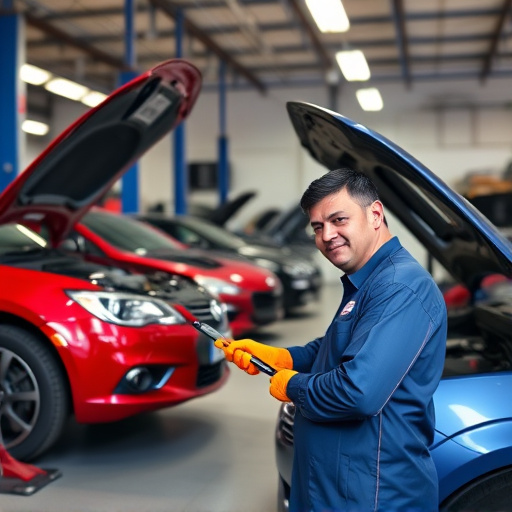
Heavy-duty trucks play a vital role in our logistics and transportation network, but they also come with unique collision risks due to their size, weight, and operating conditions. Understanding these risks is the first step towards preventing incidents. According to studies, heavy-duty truck collisions often result from a combination of driver error, vehicle maintenance issues, road conditions, and environmental factors. For instance, fatigue, distraction, and poor visibility are common causes, especially during long-haul trips or in challenging weather.
Additionally, the impact of a collision can be significantly higher due to the robust construction of these vehicles, which means damage to both the truck and other vehicles involved can be extensive. This is where professional vehicle body shop services become crucial for collision repair. Prompt action and expert intervention not only ensure safer roads but also help in minimizing downtime and costs associated with heavy-duty truck collisions. Efficient collision repair services cater to the specific needs of these trucks, utilizing specialized equipment and trained technicians to restore them to their pre-collision condition, thereby reducing the risk of future accidents.
Essential Safety Practices for Drivers
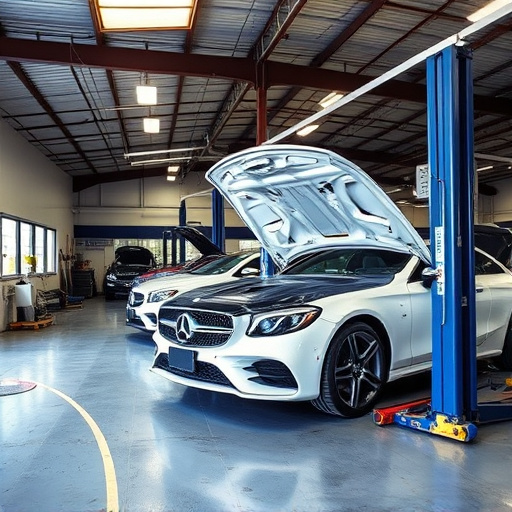
Preventing heavy-duty truck collisions requires a multi-faceted approach, but at its core lies a set of essential safety practices for drivers. Firstly, maintaining proper vehicle maintenance is paramount. Regular checks of brakes, tires, lights, and other critical systems can significantly reduce the risk of accidents. Drivers should also be vigilant about their driving behavior, adhering to speed limits, maintaining a safe following distance, and avoiding distractions like mobile phones or tiredness.
Additionally, staying alert and well-rested is crucial for heavy-duty truck drivers. Long hours on the road can lead to fatigue, which impairs reaction times and judgment. Utilizing breaks effectively, taking regular rest periods, and ensuring adequate sleep are key strategies to combat fatigue. Moreover, continuous training in defensive driving techniques can empower drivers with the skills needed to anticipate and avoid potential hazards, ultimately contributing to a safer transportation environment and minimizing the occurrence of heavy-duty truck collisions. Remember that these practices not only protect drivers but also ensure the safety of other road users, including passengers in cars, pedestrians, and fellow truckers.
Advanced Technologies for Collision Avoidance

Advanced technologies are playing a pivotal role in enhancing safety features for heavy-duty trucks, aiming to reduce and prevent collision incidents. Systems like Forward Collision Warning (FCW) use sensors and cameras to detect potential hazards ahead, alerting drivers with audible or visual signals. In the event of an imminent collision, some advanced trucks can automatically apply brakes or even steer clear of obstacles, significantly minimizing impact risks.
Another crucial technology is the use of GPS tracking and real-time fleet management systems, which enable monitoring of vehicle locations, speeds, and behaviors. This data can help identify unsafe driving patterns and prompt drivers to adhere to safe speeds, maintain proper distances, and stay within designated lanes—all key factors in preventing heavy-duty truck collisions. Moreover, these technologies aid insurance companies and vehicle repair services in tracking incident rates, leading to better road safety measures and more efficient collision centers for dent removal and other repairs.
Preventing heavy-duty truck collisions requires a multifaceted approach. By understanding the unique risks these vehicles pose, adopting essential safety practices, and leveraging advanced technologies, drivers can significantly reduce the likelihood of incidents. Combining awareness, proper training, and innovative solutions is key to ensuring safer highways for all.



